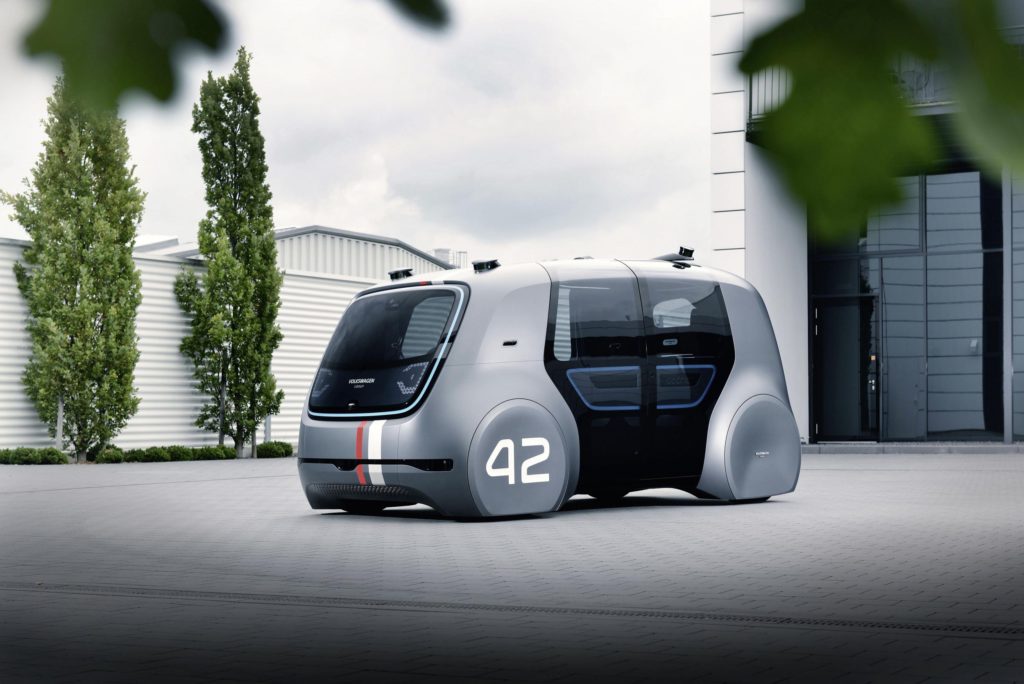Volkswagen planning to build autonomous cars and electric trucks as part of future plans
19 September 2017

19 September 2017
Volkswagen Group (VW) has plans to launch a number of fully autonomous Level 5 cars, vans and trucks, from 2021. The manufacturer will begin to test the technology at its headquarters in Wolfsburg in the near future.
Speaking to reporters, VW CEO Matthias Mueller said that the company’s Sedric self-driving concept, which was first shown at the Geneva motor show in March 2017, was just the beginning for the car maker when it comes to bringing full self-driving to the automotive market.
Speaking at the IAA show in Frankfurt, Mueller said: ′Our team is already working on ideas for a whole Sedric family of fully autonomous vehicles for the city, for luxurious long-range mobility, through self-driving delivery vans and heavy commercial trucks. Developers also are working on concepts for a robotic sports car.’
Sedric, short for ′self-driving car,’ is VW Group’s first concept. The four-person vehicle features no signs or logos from any of the group’s vehicle brands. It will be the base for the company’s push for the driverless vehicle market. ′Soon it will go into testing by transporting employees in our factory in Wolfsburg,’ Mueller said.
Johann Jungwirth, the group’s head of digitisation strategy, said fleets of fully autonomous ride-sharing vehicles will be running in ′two to five’ cities globally by 2021. The vehicles will be available for the public to hail via the VW-affiliated Moia and Gett mobility brands, he said. The goal is for the vehicles to run to ′all addresses’ in those cities, he said.
Gett, a rival to Uber, could use a production version of the Sedric, he said. The Moia vehicle is likely to be larger as an alternative to buses.
Meanwhile, VW is a ′second mover’ in electric commercial vehicles, according to the company’s head of trucks business Andreas Renschler.
The manufacturer believes it is lagging behind Tesla and Deutsche Post DHL in putting electric commercial vehicles on the roads, in an industry where developing electric powertrains that can cope with the daily demands of the logistics and transport businesses could bring in new revenue streams for manufacturers.
Speaking to the German publication Tagessspiegel, Renschler suggested that VW could deliver zero-emission trucks and buses. ′But maybe German manufacturers are too slow,’ he added, referencing a belief that the industry in the country is failing to get to grips with electric technology, lagging behind the rest of the world with its development.
The group has already said it will be spending more than €70 billion on electrifying its existing models and creating new ones, as it looks to move on from Dieselgate. It has already developed an EV minivan, the I.D. Buzz, however it is not clear whether trucks and buses, which are a separate division of the VW Group, will be included in the investment.
VW will be playing catch up with Tesla, which intends to launch its electric truck plans at the end of October 2017, and Daimler, which, through its Mitsubishi Fuso brand, has launched the eCanter electric truck, featuring a range of around 200 miles. This will go into the US market with UPS and a number of non-government organisations in New York City, before a larger global roll out in a few years’ time.
Meanwhile, German logistics group Deutsche Post, working with Ford of Europe, designed and made its own electric delivery van, the StreetScooter, and plans to double annual output to 20,000 by the end of the year.
Photograph courtesy of Volkswagen